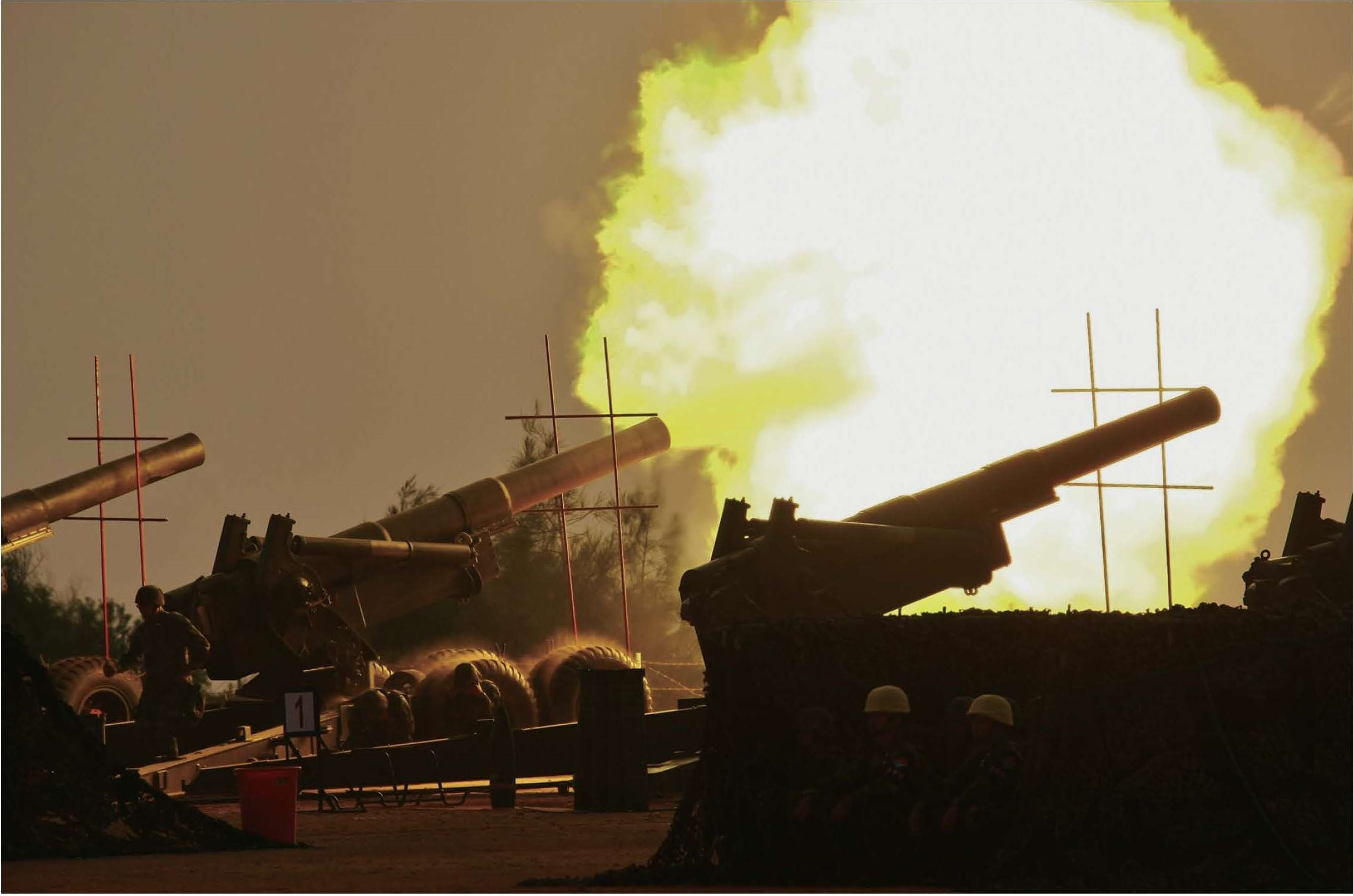Navigating Risk in the World’s Most Combustible Flashpoint
The Economist has called Taiwan “the most dangerous place on earth.” Its judgment was based not only on the intense volatility of the region – a volatility that has been underscored by China’s continuing military activity in and around the Taiwan Strait - but also because of its immense importance to the global economy:
Ninety percent of cutting-edge semiconductors are produced in Taiwan
Fifty percent of the world’s container traffic passes through the Taiwan Strait on an annual basis
The center of gravity for China’s economic miracle lies perilously close to key Taiwan shipping lanes
Any conflict in or around Greater China would have devastating consequences for the free flow of hydrocarbons from Middle Eastern producers to the dynamic economies of Northeast Asia.
Taiwan Strait Risk Report
Taiwan Strait Risk Report is your indispensable tool for keeping ahead of fast-moving Taiwan Strait developments amid China’s challenge to regional stability and the rapidly evolving political dynamic in the United States.
It consists of a monthly flagship newsletter; weekly or twice-weekly “risk alerts” or "risk updates" keyed to fast-breaking cross-strait developments; and periodic client consultations calibrated to individual needs.
Our constantly updated risk ratings quantify geopolitical risk in and around the Taiwan Strait across a wide range of military and other metrics, over short, medium and longer-range time frames. On a separate track we undertake bespoke studies based on individual client requests.
In assessing geopolitical and military risk across the Taiwan Strait and adjacent waters, we address, among other pressing issues:
The policies and decision-making process of the Chinese Communist Party and the People’s Liberation Army
The consequences of the changing political situation in the United States on the open-ended continuation of Taiwan’s de facto independence
Taiwan’s ability to develop a credible military deterrent
China’s increasingly assertive maritime posture in the South China Sea
The risk of an accidental confrontation
Our Team
Peter Enav is the founder and editor of Taiwan Strait Risk Report. He has spent 17 years living and working in Asia, including nine (2005-2014) as the head of the Taipei bureau of the Associated Press, where he closely monitored Taiwan defence issues and the evolution of the U.S.-China-Taiwan strategic triangle.
While living in Israel in the 1990s, he established the risk consultancy Cosmopolitics Inc., which produced a series of in-depth reports on political stability in major Middle Eastern oil producers for Japan’s Ministry of International Trade and Industry, as well as for Financial Times Energy Publications in London.
Enav has a BA in Asian Studies from the University of Wisconsin, Madison and an MA in Chinese Studies from the University of California, Berkeley. He is a resident of Melbourne, Australia.
Mike Chinoy, Taiwan Strait Risk Report’s consulting editor, is a Nonresident Scholar at the University of California San Diego’s 21st Century China Center. Previously, he spent 24 years as a foreign correspondent for CNN, serving as the network’s first Bureau Chief in Beijing and then as Senior Asia Correspondent.
He has received Emmy, Peabody, and Dupont awards for his journalism. Chinoy is the author of five books: China Live: People Power and the Television Revolution, Meltdown: The Inside Story of the North Korean Nuclear Crisis, The Last POW, Are You With Me? Kevin Boyle and the Rise of the Human Rights Movement, and Assignment China: An Oral History of American Journalists in the People’s Republic.
He holds a BA from Yale University and an MS from Columbia University. He is based in Taipei.
Taiwan Strait Risk Report is aimed at companies, financial institutions and governments seeking to better understand geopolitical risk in and around the turbulent waters of the Taiwan Strait. Our clients include cutting-edge high-tech firms, OECD foreign ministries, international money managers, shipping concerns, and top-tier IT companies from Silicon Valley. Since we began operations in the summer of 2022, our subscription renewal rate is 100 per cent.
Who Should Subscribe
Our analysis of the Taiwan Strait situation is based not only on our decades of experience in assessing economic and political developments in East Asia, but also on our insider access to China/Taiwan decision makers in Washington, Taipei and elsewhere in Asia and Europe.
We are rigorous in maintaining analytical objectivity in presenting our conclusions. Through our regular “risk alerts” and the fortnightly frequency of our flagship newletter, we are particularly proud of our success in offering clients a nimble approach to staying ahead of cross-strait developments and providing a depth of focus unavailable in other Taiwan Strait information products.
Our Approach
“After reading the report consistently for over a year and a half, I can confidently say that it offers an invaluable asset in navigating a complex subject, delivering a concise and precise summary, and simplifying endless details into a coherent and insightful picture. The accessible format of the report provides bold numerical assessments as well as presenting scenario-specific insights, with compelling analysis and context."
Maya Yaron, Director
Israel Representative Office, Taipei
Testimonials
“I just read the latest Taiwan Strait Risk Report issue and it’s excellent. It's a great synthesis and update of everything that's relevant to observers focused on these issues. Very well researched and most critically, with the risk index, timely. I recommend it highly to anyone who trades with, lends to, or is investing in the region.”
Stephen Kay, Managing Director
Marsh Credit Specialties, New York, USA
“Peter and Mike are some of the sharpest thinkers in the geopolitical risk space.
The Taiwan Strait Risk Report provides crucial and trenchant analysis so that investors and regulators can make informed decisions about the world’s most important flashpoint.”
Isaac Stone Fish, CEO and founder
Strategy Risks
Events and Speaking Engagements
Upon request we speak at executive-level briefings, conferences and private round tables. In recent months we have appeared at the following:
European Chamber of Commerce, Taipei
American Chamber of Commerce, Taipei
Asia CEO Forum, Hong Kong
JP Morgan CEO/CFO conference, Taipei
Propeller Club of Northern California/California Maritime Academy, Oakland/Vallejo
Inland Empire Regional Chamber of Commerce, Ontario, California













